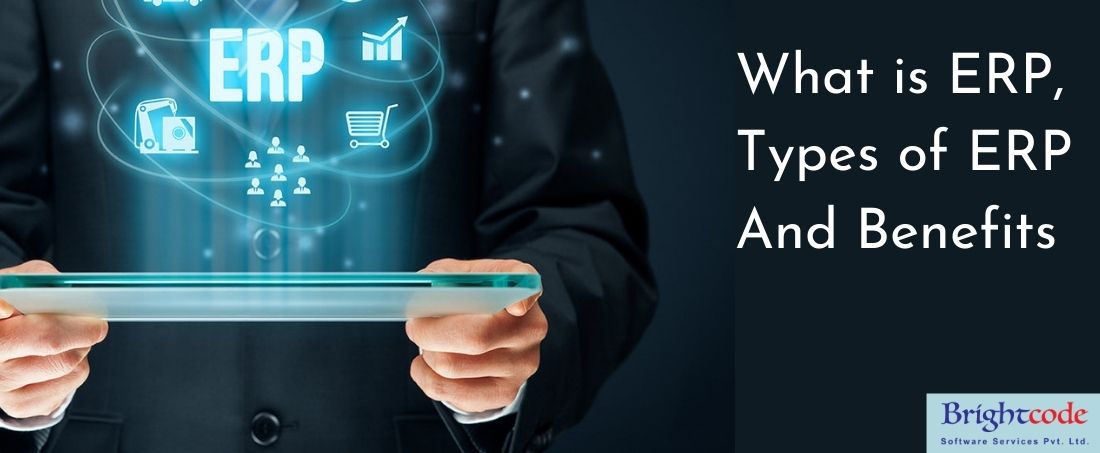What is ERP, Types of ERP And Benefits
Posted Date - 2021/10/09

ERP stands for Enterprise Resource Planning; system software that integrates business data to perform core processes needed to run a company such as HR, manufacturing, services, inventory, risk management, and others.
Companies that are being operated without ERP are missing out on fast-moving opportunities. It is like sailing a ship in stormy weather without the aid of a compass. Advanced ERP systems are configured with artificial intelligence; machine learning and predictive analytics that make your business identify its major problems and helps in increasing business progress exponentially.
Types of ERP
On-Premise ERP: This is a traditional model where ERP software is installed in a working location of your choice and allows you to control your business process seamlessly. Here, the maintenance of hardware and software of the ERP are the responsibilities of your own staff.
Cloud-Based ERP: In Cloud ERP, a third-party cloud provider will give access to run your ERP system in cloud computing platform. Here, the provider is only responsible to handle the maintenance works of your ERP System. If not interested to work in a public cloud, you can swap private with a low upfront cost.
Hybrid ERP: It is a combination of both On-Premise and Cloud-based ERP systems. For an enterprise that wants both types of systems to meet its business requirement, Hybrid ERP is the best solution. This is a platform where you can keep some of your applications and data on-premise and some in cloud.
Some major benefits of ERP
Increase Productivity: Most of the tasks done inside companies such as generating reports, tracking time, giving constant look at inventory levels and processing orders are time-consuming and sometimes doesn’t fall in right place due to human error. With the use of automated ERP systems, companies can improve the accuracy of their tasks and eliminate redundancy at the same time.
Deep Analytics Report: No longer need for documentation work done by individual employees or a single team for obtaining information regarding operation management. With ERP, all data can be stored, accessed, and shared through a single system. Thus, abolishing the concern of data files accuracy and scheduling period. This helps the firms to get more focused on analysis and decision making.
Lower Risk: With powerful ERP solutions, businesses can fulfil compliance with regulatory requirements on a time, increase its brand visibility and control and prevent unprophetic risk.
Exceptional Data Security: Data security is the biggest priority of ERP systems. ERP systems possess a high level of data security by consolidating substitute data interdepartmental with a single input system. On-premise ERP provides data safety through rigorous tracking of records. Coming to a cloud-based ERP system, they have multiple layers of security that mitigate the concern of security breaches while a hybrid ERP system creates backups of all critical and sensitive information.
Improves Customer Satisfaction: With readily available relevant data deployed by ERP systems, customer support teams can reduce response time without striking a balance on service quality. This helps support team to focus on building customer relationships and generate revenue for the company.

